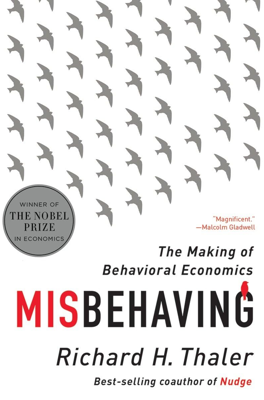The Beauty Contest
Keynes's Beauty Contest and the Efficient Market Hypothesis
The skepticism around applying behavioral economics to financial markets was strong, given the prevailing belief in the efficient market hypothesis (EMH). Proposed by Eugene Fama, the EMH suggests that financial markets efficiently reflect all available information in asset prices, making it impossible to consistently achieve superior returns. The EMH consists of two main components: the idea that prices reflect intrinsic values ("the price is right") and the impossibility of beating the market ("no free lunch").
Historical Context of Financial Economics
The formal proposal of the EMH didn’t arise until the 1970s, even though the underlying principles of optimization and equilibrium had been adopted in other economics fields earlier. The slow development might be attributed to financial economics not being a major academic focus until significant advancements such as the availability of cheap computing power and extensive data from projects like the CRSP at the University of Chicago.
Critiques and Evolution
Despite its strong initial acceptance, backed by studies like Michael Jensen’s PhD thesis suggesting fund managers cannot outperform market averages, the EMH faced critiques concerning its real-world applicability. Notably, John Maynard Keynes offered insights into the psychological factors at play in markets well before the EMH's formalization. He suggested that market prices are influenced by investors' emotions and "animal spirits" rather than purely rational calculations.
The Beauty Contest Analogy
Keynes likened professional investment to a newspaper beauty contest wherein participants must choose not the faces they personally find prettiest, but those they believe others will find appealing, thus predicting the crowd’s average preference. This analogy criticizes the notion of purely rational markets by highlighting that investment decisions often rely on guessing others' future valuations rather than assessing true intrinsic value.
The Number Guessing Game
This concept further manifests in the "number guessing game" explored by economist Rosemarie Nagel and replicated in experiments, including one by the author with Financial Times readers. Participants guessed a number aiming to be close to two-thirds of the group’s average guess. Results varied widely, demonstrating both the struggle to predict others' expectations and the ineffectiveness of the normative Nash equilibrium (where the best guess would be zero). This emphasizes the behavioral complexities in financial markets not accounted for by the EMH.
Implications for Investment Strategies
Ultimately, investment strategies often revolve around anticipating future market movements based on others' actions and expectations, much like in Keynes’s beauty contest. Investors might label themselves as "value" or "growth" investors but are fundamentally trying to predict and capitalize on how others will value stocks in the future. Thus, the market is less about assessing fair value and more about navigating perceptions and expectations—highlighting a notable departure from the EMH's assumptions.
This discussion reflects ongoing debates about the role of psychological and behavioral factors in financial markets, challenging traditional theories that assume purely rational behaviors and suggesting a need for models that better incorporate human irrationality and sentiment.
